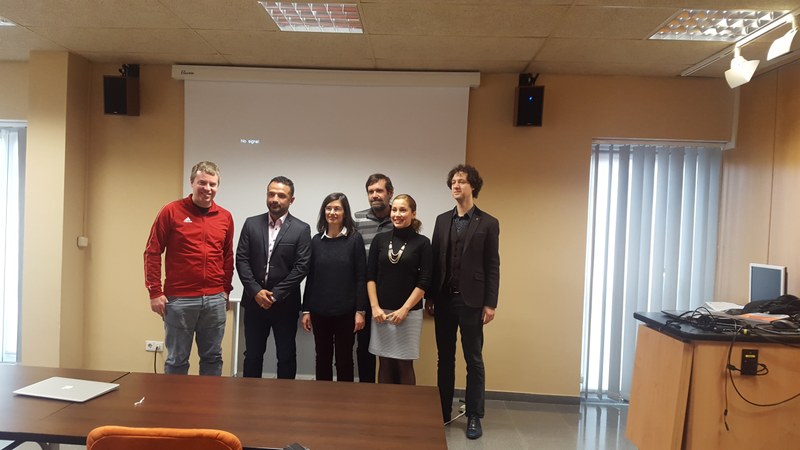Oscar H. Franco PhD thesis
Feb 27, 2018
Oscar H. Franco Bedoya gets his PhD with the thesis entitled "Open Source Software Ecosystems Quality Analysis from Data Sources" done with the supervision of Dolors Costal and David Ameller
Abstract of the thesis
Background: Open source software (OSS) and software ecosystems (SECOs) are two consolidated research areas in software engineering. The adoption of OSS by firms, governments, researchers and practitioners has been increasing rapidly in the last decades, and in consequence, they find themselves in a new kind of ecosystem composed by software communities, foundations, developers and partners, namely Open Source Software Ecosystem (OSSECO). In order to perform a systematic quality evaluation of a SECO, it is necessary to define certain types of concrete elements. This means that measures and evaluations should be described (e.g., through thresholds or expert judgment). The quality evaluation of an OSSECO may serve several purposes, for example: adopters of the products of the OSSECO may want to know about the liveliness of the OSSECO (e.g., recent updates); software developers may want to know about the activeness (e.g., how many collaborators are involved and how active they are); and the OSSECO community itself to know about the OSSECO health (e.g., evolving in the right direction). However, the current approaches for evaluating software quality (even those specific for open source software) do not cover all the aspects relevant in an OSSECO from an ecosystem perspective.
Goal: The main goal of this PhD thesis is to support the OSSECO quality evaluation by designing a framework that supports the quality evaluation of OSSECOs.
Methods: To accomplish this goal, we have used an approach based on design science methodology by Wieringa [1] and the characterization of software engineering proposed by M. Shaw [2], in order to produce a set of artefacts to contribute in the quality evaluation of OSSECOs and to learn about the effects of using these artefacts in practice.
Results: We have conducted a systematic mapping to characterize OSSECOs and designed the QuESo framework (a framework to evaluate the OSSECO quality) composed by three artifacts: (i) QuESo-model, a quality model for OSSECOs; (ii) QuESo-process, a process for conducting OSSECO quality evaluations using the QuESo-model; and (iii) QuESo-tool, a software component to support semi-automatic quality evaluation of OSSECOs. Furthermore, this framework has been validated with a case study on Eclipse.
Conclusions: This thesis has contributed to increase the knowledge and understanding of OSSECOs, and to support the quality evaluation of OSSECOs.
Keywords: software ecosystem, open source software, open source software ecosystem, open source software quality model,quality assessment, Eclipse, Bayesian network, quality assessment process, quality assessment tool research design.
[1] R. Wieringa, Design Science Methodology for Information Systems and Software Engineering, 1st ed. Springer, 2014.
[2] M. Shaw, “The coming-of-age of software architecture research,” in Proceedings of the 23rd International Conference on Software Engineering, 2001, p. 656.

Share: